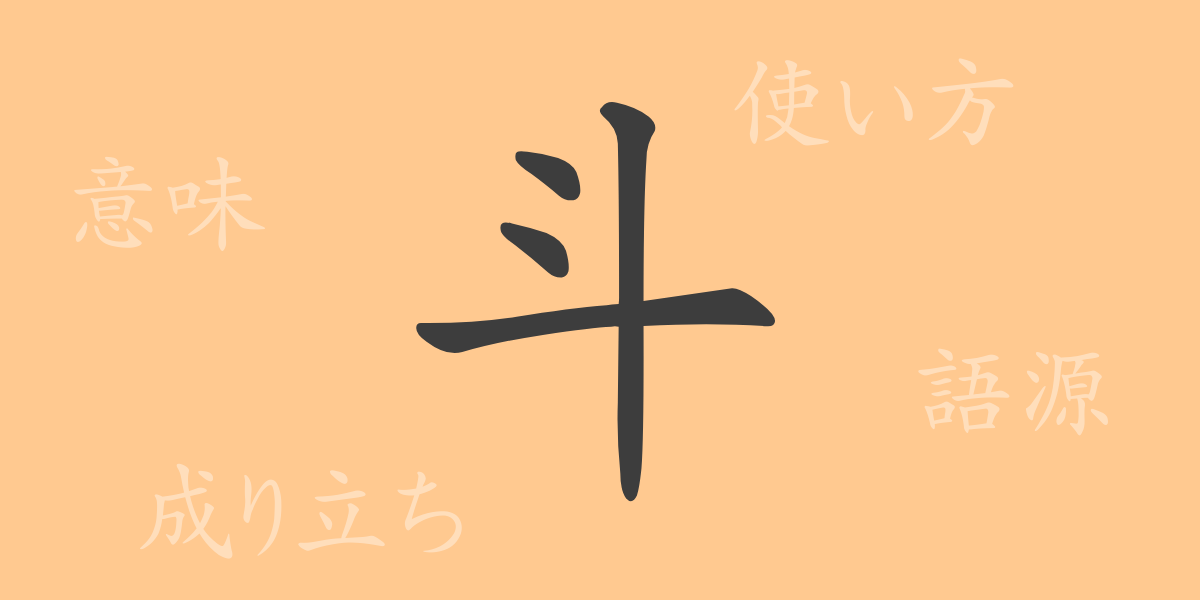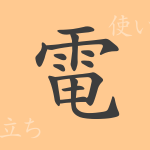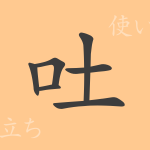The Japanese character ‘斗(ト)’ embodies the richness and depth of the Japanese language, each character holding its unique history. ‘斗’ is a Jouyou kanji that plays a crucial role in various aspects of Japanese culture and language. This article delves into the origins, meanings, usage, and pronunciation of ‘斗’, exploring how it shapes expressions in Japanese through idioms and phrases that use this character.
Origins of ‘斗(ト)’
The kanji ‘斗’ originates from ancient China and was initially used to measure grain. The character combines ‘斗部(マスブ)’, suggesting a container, with a representation of grains being measured. Over time, ‘斗’ has come to represent both a specific volume measurement and, more broadly, the stars, as seen in its use to denote constellations like the Big Dipper.
Meaning and Usage of ‘斗(ト)’
‘斗’ has two primary meanings: as a unit of measure approximately equal to 18 liters and as part of astronomical terms such as ‘北斗七星(ホクトシチセイ)’ (the Big Dipper). It is used to denote both physical measurements and, more metaphorically, elements of the night sky.
Readings, Stroke Count, and Radical of ‘斗(ト)’
‘斗’ is straightforward in its structure and memorable in its simplicity:
- Reading: On’yomi ‘ト’, no common Kun’yomi uses
- Stroke count: 4
- Radical: 斗部(マスブ)
Phrases, Idioms, and Proverbs Using ‘斗(ト)’
‘斗’ appears in various idioms and phrases that reflect its meanings and uses:
- 北斗七星(ホクトシチセイ) – The Big Dipper, a group of seven stars known for guiding travelers and symbolizing leadership.
- 南斗六星(ナントロクセイ) – A six-star constellation in the southern sky, often considered alongside the Big Dipper.
- 斗量(トリョウ) – Measuring a full ‘斗’, or using ‘斗’ to imply a large quantity.
- 斗酒(トシュ) – A large quantity of alcohol, typically used in festive or communal settings.
- 斗米(トベイ) – A measure of rice, indicating a specific quantity or, conversely, a small supply depending on context.
Conclusion on ‘斗(ト)’
The kanji ‘斗’ illustrates the linguistic and cultural richness of Japanese, from ancient measurement practices to celestial mappings. Its varied applications in phrases and idioms demonstrate its integral role in Japanese language and thought. Understanding ‘斗’ offers a window into the subtleties of Japanese expressions and the historical layers embedded within single characters.

























